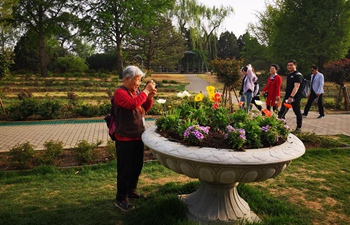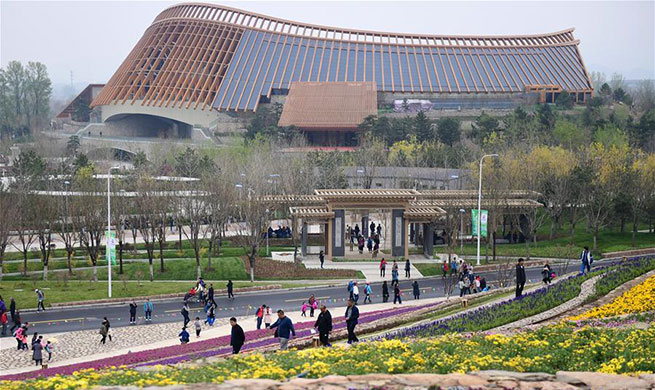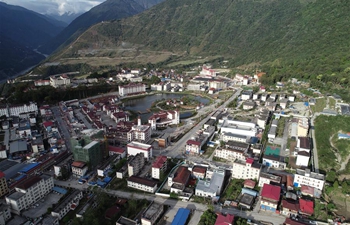PHILADELPHIA, the United States, April 20 (Xinhua) -- The Belt and Road Initiative is helpful for unlocking the potential of emerging markets and many U.S. businesses want to know more about it for making investment decisions, according to experts at the 2019 Penn Wharton China Summit held here.
"Belt and Road is enormous. It's no overstatement to say it could be the project of the century," Geoffrey Garrett, dean of the Wharton School at the University of Pennsylvania (Penn), told the event while commenting on the China-proposed initiative aimed at building trade and infrastructure network connecting Asia with Europe, Africa and beyond.
"My bottom line on this is quite simple: for every emerging market in the world other than China, infrastructure is about the biggest challenge they face. If you want to unlock the full potential of emerging markets, we need to help emerging markets build infrastructure," Garrett said in his keynote speech at the student-run Wharton summit beginning Friday.
The U.S. government, he said, has expected the private sector to "become the big infrastructure developers in emerging markets." However, the U.S. private sector has been disinvesting in Africa as increasing Chinese funds go into the continent, he added.
"Because the Chinese government is thinking about 20 years from today, 50 years from today," he said. "I think that the U.S. needs to follow China's lead and think differently about the way it finances infrastructure development."
Sun Zhe, co-director of the China Initiative at Columbia University's School of International and Public Affairs, said there is a desire on the U.S. side to know more about the Belt and Road.
He told Xinhua on the sidelines of the event that many U.S. businesses want to know how many countries have joined it, and how much China has invested in it and how it cooperates with international capitals, so that they could decide whether to be part of it.
Regarding Washington's recent allegations against the initiative, Avery Goldstein, director of Penn Center for the Study of Contemporary China, said he believes that it is a mistake to have a blanket condemnation of the BRI.
"You have to begin with facts," said Goldstein, a professor of global politics and international relations.
"I don't think it makes sense to simply refer to the entire Belt and Road Initiative as a grand effort at debt trap diplomacy by the Chinese side," he said, noting the positive contribution to the development of participating countries by some projects in the Belt and Road framework.
The three-day Philadelphia event takes place several days ahead of the second edition of the Belt and Road Forum for International Cooperation (BRF) , scheduled for April 25-27 in Beijing, which is to promote the high-quality development of the BRI cooperation as according to Chinese State Councilor and Foreign Minister Wang Yi.
The China summit was launched in 2016 and intended to bring students, experts, and business people together to discuss China's social and economic development as well as its interactions with the United States and with the rest of the world.













